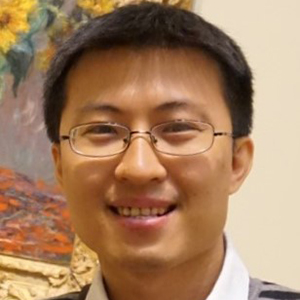Ding Lingwen
RESEARCH ASSISTANT PROFESSOR, NUS
PRINCIPAL INVESTIGATOR, Nanomedicine Translational Research Programme (NanoMed TRP), NUS

Email
patdl@nus.edu.sg
Telephone
+65 83451790
ORCID
RESEARCH ASSISTANT PROFESSOR, NUS
PRINCIPAL INVESTIGATOR, Nanomedicine Translational Research Programme (NanoMed TRP), NUS
Dr. Ding Lingwen's research interests focus on developing innovative therapeutic strategies to overcome resistance to cancer immunotherapy and identifying genetic and epigenetic abnormalities in cancers and pre-cancerous conditions. He has authored 73 manuscripts in international journals, over half of them were published in journals with impact factor >10. He also served as an invited ad hoc reviewer and reviewed over 465 manuscripts for 142 international journals. Over the past few years, he has successfully secured more than 2.2 million SGD in research funding as the Principal Investigator (PI), and 6.3 million SGD as Co-Investigator and Collaborator. He also contributes as a Team Principal Investigator to a CRP (Competitive Research Programme, 7.8 million SGD) grant from NRF. He was the recipient of the prestigious Lee Kuan Yew Postdoctoral Fellowship and the Year 2021 Gilead Research Scholars Award (Hematology and Oncology).
RESEARCH FELLOWS/ASSISTANTS
PHD STUDENT
MASTER STUDENTS
VISITING SCHOLARS
ALUMNI